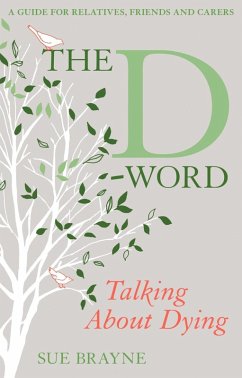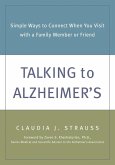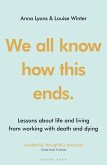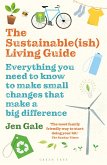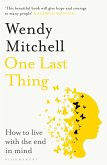The D-Word is a practical guide to support relatives, friends and carers who are coping with the distress and anxiety of someone nearing the end of life, or who has suddenly died.
Today, life-extending treatments have over-ridden care for the soul. Death is regarded as a medical failure, and usually hidden away in hospitals, hospices, nursing homes and mortuaries. We have lost the ability to talk openly about the end of life. It's frightening to know how to talk to a relative or friend who is dying, or to someone who has been suddenly bereaved but unless we confront this fear, important things can remain unsaid or incomplete, which often turns into unresolved grief, guilt and anger.
Personal stories from people from all walks of life explore the different ways they have come to terms with the dying process or the sudden death of their spouse, partner, parent, friend or child, how they have confronted their fear of talking about it, and ways in which they found support during this very difficult time.
Today, life-extending treatments have over-ridden care for the soul. Death is regarded as a medical failure, and usually hidden away in hospitals, hospices, nursing homes and mortuaries. We have lost the ability to talk openly about the end of life. It's frightening to know how to talk to a relative or friend who is dying, or to someone who has been suddenly bereaved but unless we confront this fear, important things can remain unsaid or incomplete, which often turns into unresolved grief, guilt and anger.
Personal stories from people from all walks of life explore the different ways they have come to terms with the dying process or the sudden death of their spouse, partner, parent, friend or child, how they have confronted their fear of talking about it, and ways in which they found support during this very difficult time.

